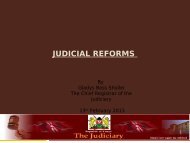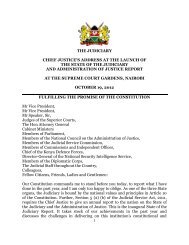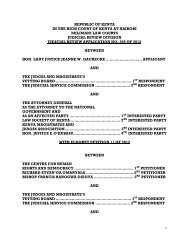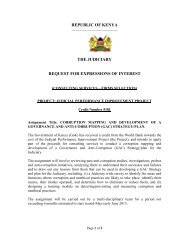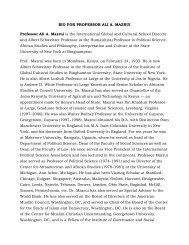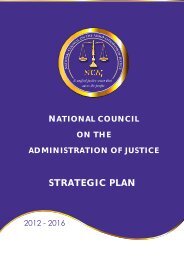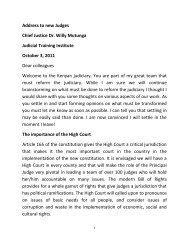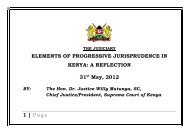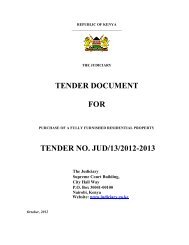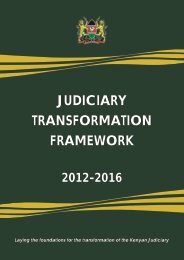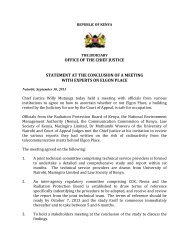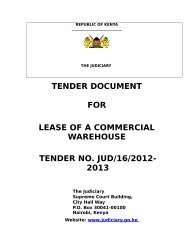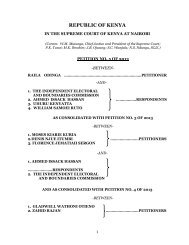REPUBLIC OF KENYA - The Judiciary
REPUBLIC OF KENYA - The Judiciary
REPUBLIC OF KENYA - The Judiciary
Create successful ePaper yourself
Turn your PDF publications into a flip-book with our unique Google optimized e-Paper software.
[98] Under Article 259(3), there is a general interpretative principle,<br />
“the doctrine of interpretation that the law is always speaking<br />
…”, with four specific rules, to guide the Kenyan courts towards relevant<br />
interpretation, by interrogating principles of common-law rootage<br />
and the international jurisprudence founded upon it.<br />
C. STARE DECISIS: WHEN SHOULD A SUPERIOR COURT DEPART<br />
FROM ITS EARLIER DECISION?<br />
[99] In this matter, we were asked to depart from our decision in the<br />
Macharia Case. Article 163(7) of the Constitution provides that<br />
“All<br />
courts,<br />
other than the Supreme Court, are bound by the decisions of the Supreme<br />
Court.” We have cited, distinguished, and applied decisions<br />
from the Commonwealth (Kenya, India, the United Kingdom, Trinidad<br />
and Tobago, Canada) and the United States, in arriving at the answer<br />
to the question of when the Supreme Court may depart from its earlier<br />
decision.<br />
[100] In the development and growth of our jurisprudence, Commonwealth<br />
and international jurisprudence will continue to be pivotal.<br />
However, the Supreme Court will have to avoid mechanistic approaches<br />
to precedent. It will not be appropriate to pick a precedent<br />
from India one day, Australia another day, South Africa another, the<br />
U.S. yet another, just because they seem to suit the immediate occa-<br />
56



